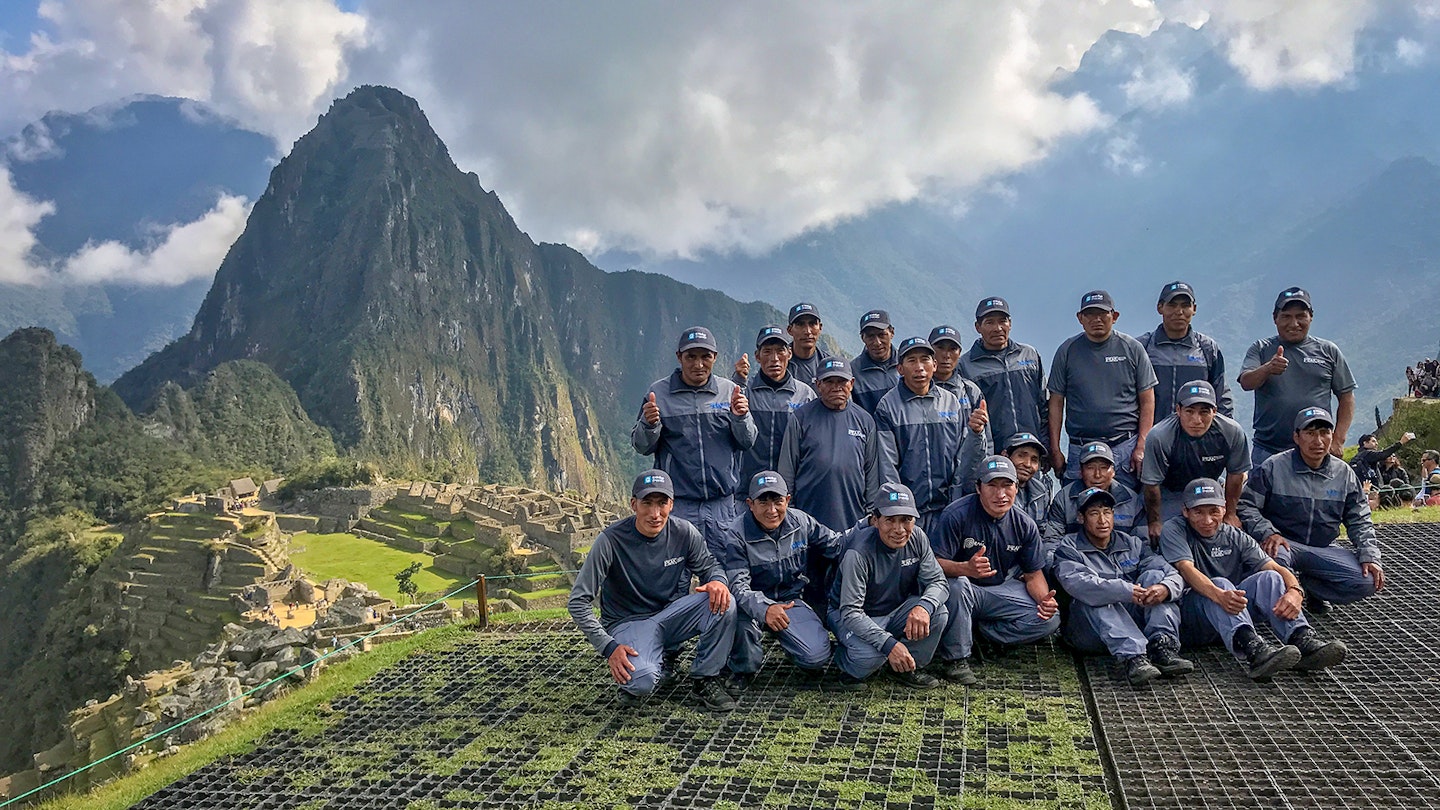The Inca Trail is one of the most famous treks in the world, attracting thousands of hikers each year eager to explore the historic path that traverses the rugged peaks and cloud forests of southern Peru. The ultimate reward after several days of navigating rocky terrain at high altitudes is to pass through the Sun Gate and witness the lush grounds of Machu Picchu unfold before your eyes.
However, this experience is not always shared by everyone in the trekking group, particularly the dedicated porters who ensure that you reach this iconic destination.
Peru’s national regulations stipulate that trekking groups on the Inca Trail can have a maximum of 42 participants, including 16 hikers, two guides, and a support crew of porters and cooks—numbers that can reach up to 24 individuals based on group size. These porters, typically locals from the nearby highland communities, take on numerous responsibilities along the trail, carrying essential gear such as tents and cooking supplies. Without their support, access to the trail would not be feasible in a safe and environmentally responsible manner. Nevertheless, an unfortunate industry norm has been that these men, who share the journey with countless visitors, often do not get the chance to experience Machu Picchu themselves.
This situation arises for several reasons. Generally, porters leave their groups at the campsite just prior to the final leg of the hike, allowing trekkers to continue towards Machu Picchu and then descend to the nearby town of Aguas Calientes by bus. They depart at this point to catch a specific train designated for transporting camping gear, returning to their homes located in remote areas far from the trailhead, or to prepare for their next journey in Aguas Calientes. Unfortunately, many porters do not return to visit Machu Picchu due to the substantial personal cost associated with transportation and entry fees for themselves and their families. This unfortunate combination of factors has left numerous porters, some with over 15 years of experience on the trail, without the opportunity to see this world-renowned site.
This situation highlights a significant disconnect between the tourism industry and Peruvian communities; tourists pay to explore one of the world’s most celebrated cultural sites while those who share this rich heritage are virtually denied access. On a positive note, there are ongoing efforts to rectify this imbalance, aiming to create a lasting impact on the trekking industry and how it supports its local workforce.
In 2017, Exodus Travels initiated programs allowing porters to visit Machu Picchu, organizing tours conducted in Quechua—their first language for many—and covering all related expenses for the trip. Maritza Chacacantas, Deputy Manager of Treks with adventure management service PEAK, oversees these excursions and acts as a supervisor for all porters, guides, and horsemen. Chacacantas is deeply familiar with the trail, having been one of its first female guides back in 2000. She proudly states, “I feel happy, proud of the company I work with. The locals, the porters, are as important as the client. Everyone from Cuzco and the surrounding communities should be able to visit Machu Picchu.”
The porters’ visit to this historic site serves as a poignant reminder of the intersection of past and present; they gather at the initial lookout point, many donning traditional Andean ponchos for memorable photos before the expansive ruins. Adrian Jiménez Suma, a guide from nearby Ollantaytambo, gathers the group to begin his presentation, with his Quechua strikingly different from the surrounding English- and Spanish-language tours. Jiménez, who now guides groups, started his career in tourism as a porter.
“A lot of the young guys work as porters and dream of becoming guides,” Jiménez shares. “When I was a porter, I learned to value life, to take care of our environment and to preserve our culture. I also observed the wealth of our traditions and our pride in being Peruvian Quechua speakers. Porters exemplify the strength of the Andean people and reflect how the culture lives within them.”
Santiago Gutierrez, who leads this group of porters from the small mountain township of Poques, has worked on the trail for eight years. “We had never visited, this group, and now it’s our turn,” he explains. Similarly, Pedro Quispe, also from Poques and a porter for five years, shares, “We had seen videos of Machu Picchu in parts, but never the whole thing. It makes me really happy to have seen it all.”
Exodus has reported that other companies have since joined the initiative to allow porters access to Machu Picchu, marking a tangible step towards creating a more sustainable and equitable Inca Trail experience. Furthermore, in 2003, Peru enacted the Porters Law to protect these workers, who previously lacked legal safeguards. This law stipulates that porters can carry no more than 20kg (44lbs), with 5kg reserved for personal items, and mandates that they must be paid a minimum of S/. 44 per day (approximately USD $14). For many porters who are also seasonal farmers, the income generated from the trail plays a critical role in supporting their households during off-seasons when crops are not ready for harvest; therefore, fair compensation for their labor is crucial.
While companies may face fines for violating the Porters Law, such occurrences continue to transpire. Travelers looking to experience the Inca Trail should be mindful of where their money is going. If an Inca Trail tour package seems unusually cheap, it is likely that the porters and local employees are not receiving fair wages. Prospective hikers should inquire about porter compensation, weight limits for carried loads, and whether the business provides quality trekking gear to porters free of charge. During the trek, it’s also vital to respect the environment by cleaning up any trash and to graciously tip porters and guides for their hard work.





